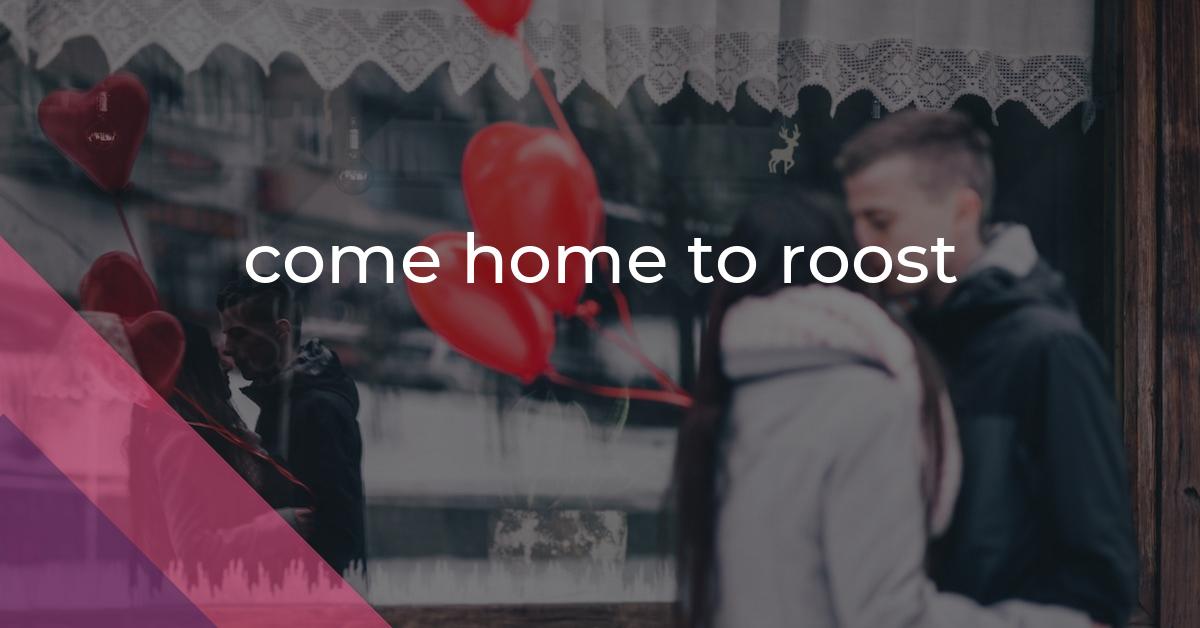come home to roost: Idiom Meaning and Origin
What does ‘come home to roost’ mean?
The idiom *come home to roost* means that the negative consequences of one's actions will eventually catch up with them.

Idiom Explorer
The idiom "the chickens come home to roost" means that negative consequences or troubles from previous actions will eventually catch up to a person.
The idiom "get what's coming to one" means to receive the punishment or consequences that one deserves for their actions or behavior.
The idiom "everything one touches turns to shit" means that everything a person comes into contact with or tries to do goes wrong or becomes a disaster.
The idiom "eat crow" means to admit a mistake or defeat and accept the consequences, often with humility and embarrassment.
The idiom "doomed if you do, doomed if you don't" refers to a lose-lose situation, where any choice or action will lead to negative consequences or a bad outcome.
The idiom "dog that caught the car" refers to someone who has achieved a goal but is uncertain about what to do next or ill-prepared to handle the situation. It emphasizes the feeling of being overwhelmed or unprepared for the consequences of one's actions.
The idiom "dig one's own grave" means to do something that will ultimately lead to one's own downfall or ruin.
The idiom "Daniel come to judgement" means a person or group is being held accountable or facing a situation where their actions and decisions are being evaluated. It is often used in legal or moral contexts.
The idiom "damned if one does and damned if one doesn't" means that no matter what action or decision one takes, they will face negative consequences or criticism.
The idiom "cook someone's goose" means to ruin someone's plans or cause their downfall.
Deciphering the Anticipated Repercussions
The idiom "the chickens come home to roost" is closely related to the expression "come home to roost." Both idioms convey a similar meaning, emphasizing the consequences or negative outcomes of one's actions. While "come home to roost" is a more general phrase, "the chickens come home to roost" specifically evokes the image of chickens returning to their coop at night, symbolizing the inevitable reckoning for past actions or decisions.
Similarly, the idiom "get what's coming to one" shares the same theme of facing the consequences. It suggests that individuals will ultimately receive what they deserve, whether it be positive or negative. This idiom adds a sense of justice to the notion of actions catching up, suggesting that individuals will eventually reap what they sow.
Another related idiom is "catch it," which implies receiving punishment or criticism for one's actions. It portrays the idea that individuals cannot avoid or escape the consequences of their behavior. This phrase highlights the sense of accountability and the need to face the music when actions have negative repercussions.
Lastly, the idiom "come a cropper" also aligns with the idea of facing negative outcomes. This expression suggests a sudden and unexpected failure or misfortune resulting from one's actions or decisions. It emphasizes that individuals can experience a sharp downfall or setback as a result of their choices.
These idioms all revolve around the concept of actions having consequences. Whether it's "the chickens come home to roost," "get what's coming to one," "catch it," or "come a cropper," they all convey the idea that individuals will eventually face the results of their actions. These idioms serve as reminders of personal responsibility and the inevitability of the repercussions of our choices. Just like birds returning to their roost, we must confront and acknowledge the consequences of our actions.
Example usage
Examples:
1) "His lies eventually came home to roost when his reputation was destroyed."
2) "The consequences of her actions came home to roost when she lost her job."
3) "The financial decisions made by the company came home to roost when they faced bankruptcy."
More "Consequences" idioms



